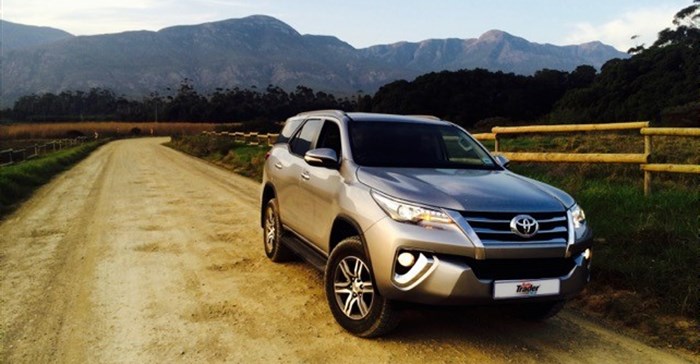As our currency further loses value, car prices are on the rise and South African car buyers are feeling the financial pinch. New vehicle financing deals are at their lowest since May 2009. According to NAAMSA, new car sales have dropped 22% year-to-date.
According to the latest TransUnion SA Vehicle Pricing Index (VPI), the South African motoring industry is facing a trying second quarter this year. The Q2 2016 VPI found that the rate of new vehicle pricing increased by 8.4%, while used vehicle prices increased by 2.7%. This drastic price surge in new vehicles can be attributed to a delayed reaction to the rand weakness and ongoing poor economic conditions, according to Derick de Vries, CEO auto information solutions at TransUnion.
Slowing sales volumes
“The combined effect of the negative GDP growth rate, the increase in interest rates, higher inflation, the increase in unemployment, lower consumer confidence and economic instability have all played a role in the increase of new and used vehicle pricing,” said de Vries. “These combined factors are slowing down sales volumes substantially. The demand for used vehicles is also increasing considering the affordability challenges in the new vehicle market”.
The TransUnion SA Vehicle Pricing Index (VPI) for new and used vehicle prices increased substantially to 8.4% and 2.7% in Q2 2016 from 6.6% and 2.2% in Q1 2016 respectively. The index measures the relationship between the increase in vehicle pricing for new and used vehicles from a basket of passenger vehicles, which incorporates 15 top-volume manufacturers. Vehicle sales data collated from across the industry was used to create the index.
“The index indicates that consumers are enduring substantial increases in the basket of high volume passenger vehicles and this will slow the new and used car market,” said de Vries. “Consumers tend to look for cheaper cars or hold on to their existing vehicles for longer than normal.”
Fewer deals financed
TransUnion data also show that there have been fewer deals financed in the second quarter of this year, compared to last year. “TransUnion’s financial registrations data indicates a drop of around 48% and 24% on new and used financed deals respectively in Q2 2016 compared to Q2 2015,” said de Vries. “The drop in new vehicle financial deals is the lowest it’s been since May 2009, due to the highest percentage change in the VPI since 2009 Q4.”
The percentage of new and used cars being financed under R200,000 remains unchanged from last quarter. This indicates that the trend will continue next quarter. “Consumers are either financing cheaper new vehicles or more expensive used vehicles. This is shown by the increase in used car loans which has increased from R136,000 to R189,000. There is therefore a shifting emphasis on the value proposition that consumers place on their vehicles as they look for the maximum amount of value from a car,” said de Vries.
Data from vehicle finance market leader WesBank concurs. In June, the average deal values for both new and used cars reached record levels. Based on the average financed amount, consumers spent 10.4% more on average. Amid slow growth and high new car price inflation, the average new car deal grew by 11.9%.
Supply-demand market
According to Rudolf Mahoney, head of brand and communication at WesBank, pricing in the used market is being driven by supply-demand market dynamics, as more buyers shift away from the new car market. “We predict that the market will start shifting back to new within the next 12-18 months, as the supply of quality used models dries up. Buyers re-entering the market are also more likely to shop in lower segments – again, affected by affordability.”
“A depressed car market highlights the need for manufacturers to slow down production or cut margins to create more demand. Dealerships will need to implement targeted marketing strategies to match supply to demand and implement more incentives,” explained Derick de Vries.
“Overall, the current economic conditions are impacting multiple vehicle-related industries including finance houses, manufacturers, insurers and dealerships. Finance houses are facing declining applications while manufacturers and dealerships face a declining vehicle market. Furthermore, insurance companies will need to remain competitive in order to reduce cancellations,” de Vries concluded.
In terms of sales numbers, Toyota, VW, Ford and BMW are the only manufacturers appearing in the top five for both new and used passenger car volumes, from all sectors.
Source: TransUnion SA, NAAMSA
















































